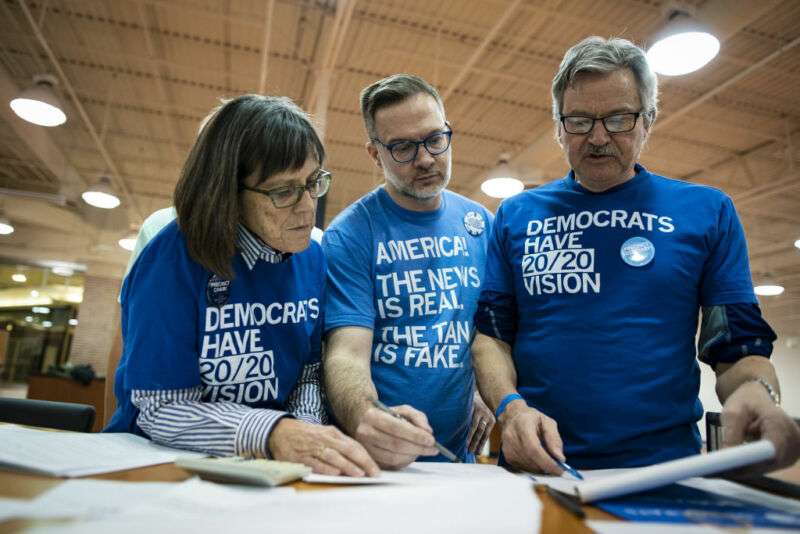
Robust, scalable not words that apply to Iowa Dem Caucus app

Iowa’s Democratic Party turned to an untested software platform tied to a mobile application to streamline reporting from its presidential caucuses last night. What could possibly go wrong?
In a collapse that echoed the failure of a canvassing application used by Sen. Mitt Romney’s 2012 presidential bid, the caucus reporting app repeatedly hung as precinct leaders attempted to submit returns. A backup hotline was jammed for hours. And as of the morning after the caucuses, the full results are still not tallied.
The application was built on technology provided by Shadow Inc.—a technology company that received seed funding from the nonprofit ACRONYM. Shadow’s CEO, Gerard Niemiria, previously ran the software tool development team for Hillary Clinton’s campaign organization. He left an executive position at ACRONYM to launch the company last year.
According to the company, Shadow is staffed by “campaign and technology veterans who have built and implemented technology at Hillary for America, Obama for America, Google, Kiva, Apple, the AFL-CIO, and the DNC.” Shadow’s primary products are a campaign messaging platform and a data integration platform called LightRail, which the company describes as “the universal adapter for political data… a data integration and automation tool that makes it easier for users to get your organization’s data where it needs to go and makes complicated workflows simple, repeatable, and scalable.”
Last week we launched Lightrail 🚝 and Shadow Messaging. 📲
Learn more about why we built a universal adapter for political data and technology.https://t.co/mmefiAeuCr
— Shadow, Inc. (@ShadowIncHQ) July 22, 2019
It does not appear that the mobile app built for the Iowa caucuses was simple or scalable.
Because of the paper-based reporting process for Iowa’s caucuses, the app required both manual count entries and (for backup purposes) an image of the paper-based vote tally. In caucuses, votes are public and involve headcounts of supporters rather than ballots cast, and the tally sheets are the only hard-copy record of the results. But multiple Iowa Democratic Party officials reported the application crashing during the upload of the photos of those paper tallies. And in at least three cases where the upload did succeed, the numbers recorded did not match the numbers submitted by caucus precinct chairs.
In an interview with CNN, Polk County Democratic Chairman Sean Bagniewski said that testing of the application last Thursday had gone less than smoothly and that he had told precinct chairs who couldn’t get the application to work to call in their results to the Iowa Democratic Party’s hotline. That hotline was jammed on Monday night, with some party officials giving up and going home before they had been able to report results.
Iowa Democratic Party Communications Director Mandy McClure said in a statement that there were no integrity issues but that “we found inconsistencies in the reporting of three sets of results. In addition to the tech systems being used to tabulate results, we are also using photos of results and a paper trail to validate that all results match and ensure that we have confidence and accuracy in the numbers we report.”
It’s not clear how much stress testing the caucus app underwent before it was first handed to precinct chairs last week. But the caucus app’s requirement to handle images of final delegate tallies from each precinct and reliance on cellular networks of varying capacity were clearly variables that weren’t fully explored before the app was shipped.




